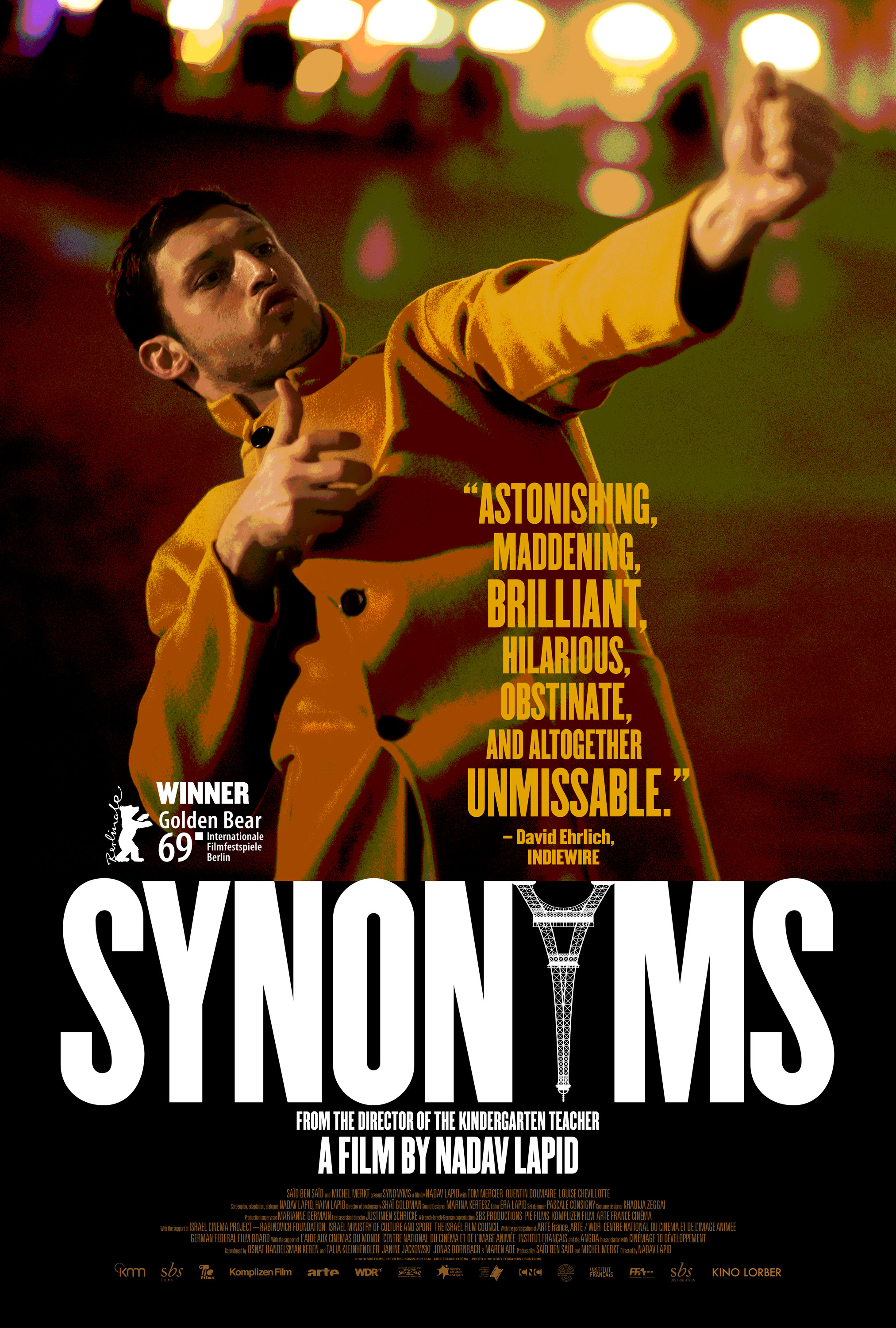by Chris Feil
 Unfolding with the wonder of a contemporary fable, Nadav Lapid’s Synonyms takes a sometimes witty but often breathtaking approach to displaced national identity. Already awarded the Berlin International Film Festival’s Golden Bear, the film is an unpredictable existential examination of redefining oneself in a world that exploits you, and the limitations of willful self-reinvention.
Unfolding with the wonder of a contemporary fable, Nadav Lapid’s Synonyms takes a sometimes witty but often breathtaking approach to displaced national identity. Already awarded the Berlin International Film Festival’s Golden Bear, the film is an unpredictable existential examination of redefining oneself in a world that exploits you, and the limitations of willful self-reinvention.
Newcomer Tom Mercier stars as Yoav, a young Iscraeli man relocating to Paris after a term in the military. He’s quickly robbed of all his belongings while squatting in a posh apartment, begging for help naked throughout the building before being found near death by young couple Caroline and Emile (Louise Chevillotte and Quentin Dolmaire). They possess the prototypically French persona that Yoav wants to adopt, and are all too generous and willing to play welcoming committee...
Yoav is as much of a blank canvas to be built in their image as that empty apartment he had just briefly occupied. Left with only his lip ring as his single possession, he offers it as collateral for their kindness. The ring is never to be seen again, as easily discarded and quickly forgotten as Yoav wishes his former life could be. They dress him (his new uniform becomes a mustard trenchcoat, like a masculine Little Red Riding Hood), they lust over him, they take his past for their own creative inspiration. But Yoav slowly discovers that their casual companionship doesn’t rebuild his spirit even as he mimes a sometimes passably French persona.
Becoming that blank canvas, however, is Yoav’s foundation in rejecting his Israeli identity and inventing a French one. He takes a tiny cave of an apartment for himself, his repeated meals and wardrobe creating a habitual rhythm for his new life as he goes about his work at the Israeli consulate. But instead of allowing Frenchness to impose itself upon Yoav as her desires, such blankness only allows his former anxieties to resurface as he is subjected to new objectifications and emotional disappointments.
Mercier however is less of a cipher to the film’s themes and his character’s outward emptiness than you might initially fear. Nor is this study of masculinity defaulted to brooding or blind rage, despite how Mercier peppers his quietness with a litany of pejoratives at his homeland. The actor finds a way to make Yoav’s sublimation and side-stepping physical, offering a performance that is as much about the body as it is the soul. He allows him to frustrate us much as he ignites our empathy, but never reduces his story to oversimplified talking points. Mercier, as with the film, is desperately human.
Yoav’s mannered, labored lifestyle is elegantly unmatched with how Lapid composes the film. Where his protagonist lives by forced order, Lapid is unfettered, delivering stylistic and ideological textures unencumbered by our expectations. Where similarly sleek cinema leans into its stylistic flair, Synonyms sparks with something more empathically centered. When the film’s punishments get all to real, Lapid undercuts with more allegorical and abstract narrative touches. It’s a balance of tones and textures that makes the film as surprising as it is, and as rewarding.

The film also has an emotional intelligence and intellectual intuition to how it captures the city. Yoav’s rage at his past leaves him with a near ambivalence to the grimmer isolations of his new life in Paris, complicating how he perceives it as a spiritual salvation. There’s a sober, detached feeling to the way Lapid first captures his newfound French environment (and occasionally oddly low-fi), tonally attuning the film to Yoav’s demonstrativeness to only see his escape for what he wants (or desperately needs) it to be. Where other films romanticize Paris, Lapid’s depiction makes the city’s distinctiveness beside the point, as if Frenchness itself is largely arbitrary as he leaves his former life behind.
Alternately, Lapid reveals Yoav’s past with an almost mythic quality, heightened by the film’s sensory specificity. Meanwhile, the dry visual wit the film grafts onto his verbal tirades and its overall staging doesn’t deceive the very serious nature at its core. You leave the film dazed and angry but not despairing, too exhilarated to be exhausted by its intellectual landmines steadily placed throughout.
Ending with a final act of grave symbolic meaning, Synonyms still remains light on its feet as it plumbs Yoav’s deep-seated psychological angst. It’s sophisticated, essential viewing that is subtle and vast at once, unshakable in its narrative reach. A-
Related:
4 Ophir nominations (Israel's Oscars) -Actor, Director, Cinematography, and Editing